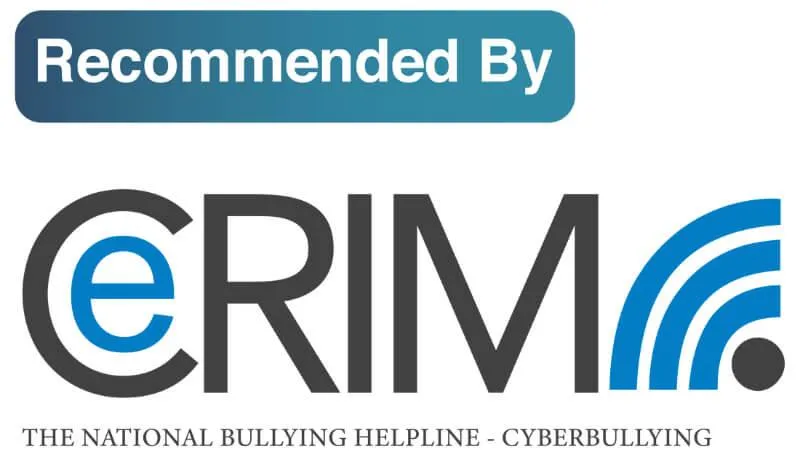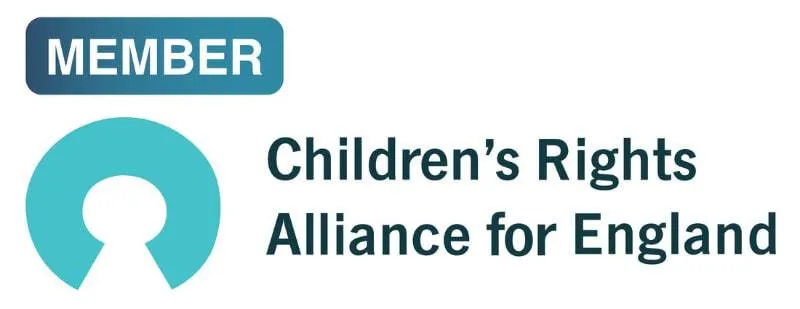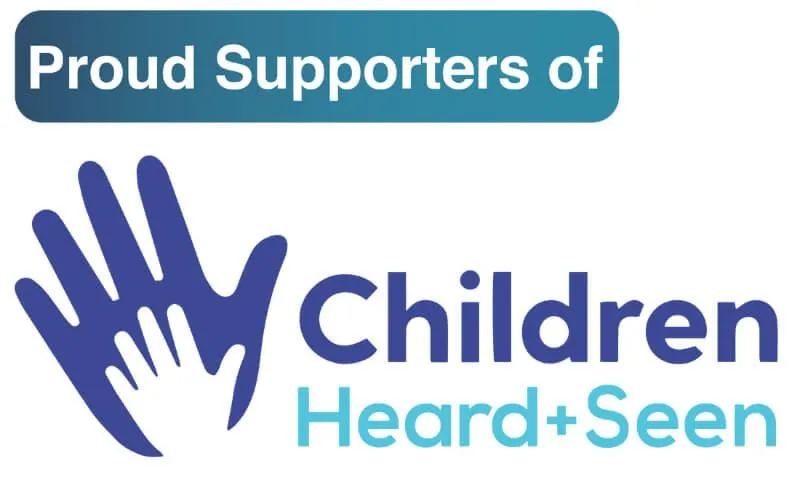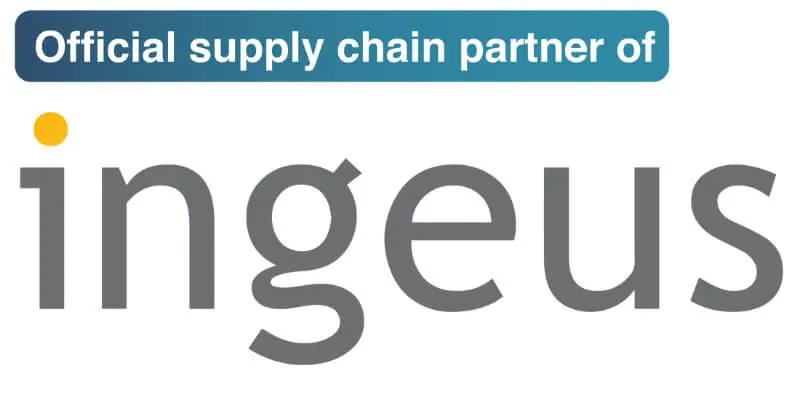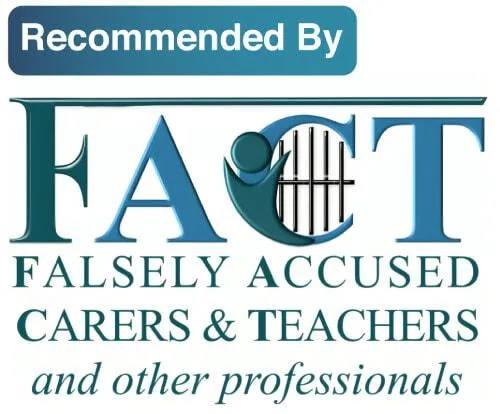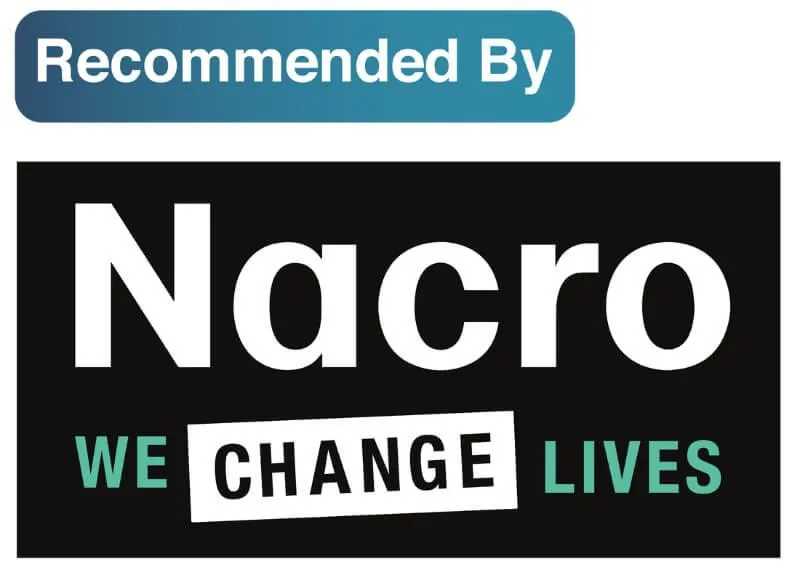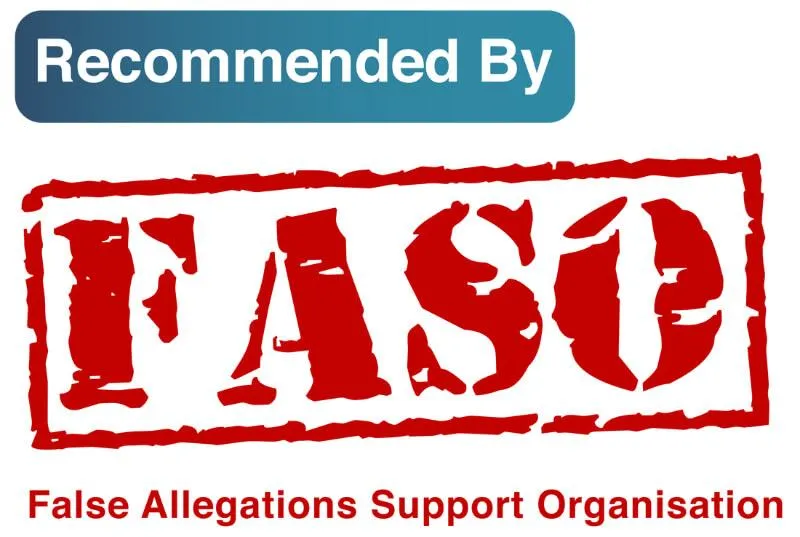

ERASE HARMFUL ONLINE CONTENT
RECLAIM YOUR REPUTATION TODAY!
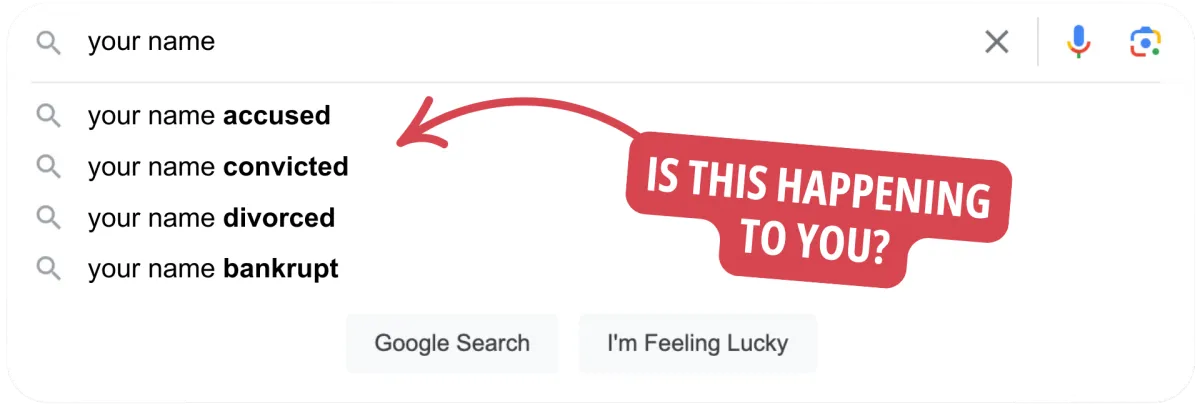
At Internet Erasure, we specialise in removing harmful search results, social media posts, and outdated articles quickly and effectively. Click below to start your journey to a clean digital slate.
ERASE HARMFUL ONLINE CONTENT
RECLAIM YOUR REPUTATION TODAY!

At Internet Erasure, we specialise in removing harmful search results, social media posts, and outdated articles quickly and effectively. Click below to start your journey to a clean digital slate.
Simple Online Form
We'll ask you a few basic questions to make sure this is the right fit for you. We only take clients we're positive we can achieve results for.
Book Your Consultation
We'll book you in for a short consultation to give you some more information on how the process works and what results you can expect.
Work Begins
We work diligently until your removal from search results is achieved, regardless of the number of submissions, case reviews, or appeals needed.
Simple Online Form
We'll ask you a few basic questions to make sure this is the right fit for you. We only take clients we're positive we can achieve results for.
Book Your Consultation
We'll book you in for a short consultation to give you some more information on how the process works and what results you can expect.
Work Begins
We work diligently until your removal from search results is achieved, regardless of the number of submissions, case reviews, or appeals needed.
Your Online Reputation Is Too Important to Ignore
Negative online content can cost you job opportunities, relationships, and peace of mind. Don’t let outdated or harmful information define you. Take control of your digital presence today.
Negative or outdated news articles
Inappropriate or embarrassing social media posts
Harmful search engine results
Photos or videos that you no longer want online
Online reviews that misrepresent your business
Public records or personal data leaks
Many more...
Your Online Reputation Is Too Important to Ignore
Negative online content can cost you job opportunities, relationships, and peace of mind. Don’t let outdated or harmful information define you. Take control of your digital presence today.
Negative or outdated news articles
Inappropriate or embarrassing social media posts
Harmful search engine results
Photos or videos that you no longer want online
Online reviews that misrepresent your business
Public records or personal data leaks
Many more...
EVERYONE HAS THE RIGHT TO BE FORGOTTEN
Take control of your digital past and protect your future. The 'Right to Erasure' empowers you to remove harmful or outdated content for good. Start reclaiming your online reputation today.
EVERYONE HAS THE RIGHT TO BE FORGOTTEN
Take control of your digital past and protect your future. The 'Right to Erasure' empowers you to remove harmful or outdated content for good. Start reclaiming your online reputation today.
We Remove Harmful Content So You Can Move Forward
Our proven process is designed to make removing harmful online content simple and stress-free.
Here’s how it works:

Step 1:
Comprehensive Assessment
We start by thoroughly analysing your online presence to identify harmful content across search engines, social media, news sites, and many other platforms. Our goal is to ensure no damaging or outdated content is missed or excluded.

Step 2:
Swift and Effective Removal
Once identified, we take action to remove the harmful content. Whether it’s contacting website admins, leveraging privacy laws, or using the ‘Right to Be Forgotten,’ we employ proven methods to ensure the content is taken down permanently.

Step 3:
Ongoing Support
After the removal process is complete, we offer ongoing support to monitor your online presence and ensure future risks are minimised. This way, you can move forward in life with confidence, knowing your reputation is in safe hands.
We Remove Harmful Content So You Can Move Forward
Our proven process is designed to make removing harmful online content simple and stress-free.
Here’s how it works:

Step 1:
Comprehensive Assessment
We start by thoroughly analysing your online presence to identify harmful content across search engines, social media, news sites, and many other platforms. Our goal is to ensure no damaging or outdated content is missed or excluded.

Step 2:
Swift and Effective Removal
Once identified, we take action to remove the harmful content. Whether it’s contacting website admins, leveraging privacy laws, or using the ‘Right to Be Forgotten,’ we employ proven methods to ensure the content is taken down permanently.

Step 3:
Ongoing Support
After the removal process is complete, we offer ongoing support to monitor your online presence and ensure future risks are minimised. This way, you can move forward in life with confidence, knowing your reputation is in safe hands.
What Is the Right to Erasure?
The ‘Right to Erasure,’ also known as the ‘Right to Be Forgotten,’ is a legal provision under the GDPR (General Data Protection Regulation) that empowers you to request the removal of personal data or online content that is outdated, irrelevant, or harmful.
At Internet Erasure, we leverage this powerful tool to help individuals and businesses take control of their digital footprint by permanently removing harmful search results, social media posts, and other damaging online content."
You can request content removal if it’s outdated, inaccurate, or no longer relevant.
Applies to search engines, websites, and other platforms that hold your data.
Protects your privacy and ensures your past doesn’t overshadow your present or future.

What Is the Right to Erasure?
The ‘Right to Erasure,’ also known as the ‘Right to Be Forgotten,’ is a legal provision under the GDPR (General Data Protection Regulation) that empowers you to request the removal of personal data or online content that is outdated, irrelevant, or harmful.
At Internet Erasure, we leverage this powerful tool to help individuals and businesses take control of their digital footprint by permanently removing harmful search results, social media posts, and other damaging online content."
You can request content removal if it’s outdated, inaccurate, or no longer relevant.
Applies to search engines, websites, and other platforms that hold your data.
Protects your privacy and ensures your past doesn’t overshadow your present or future.
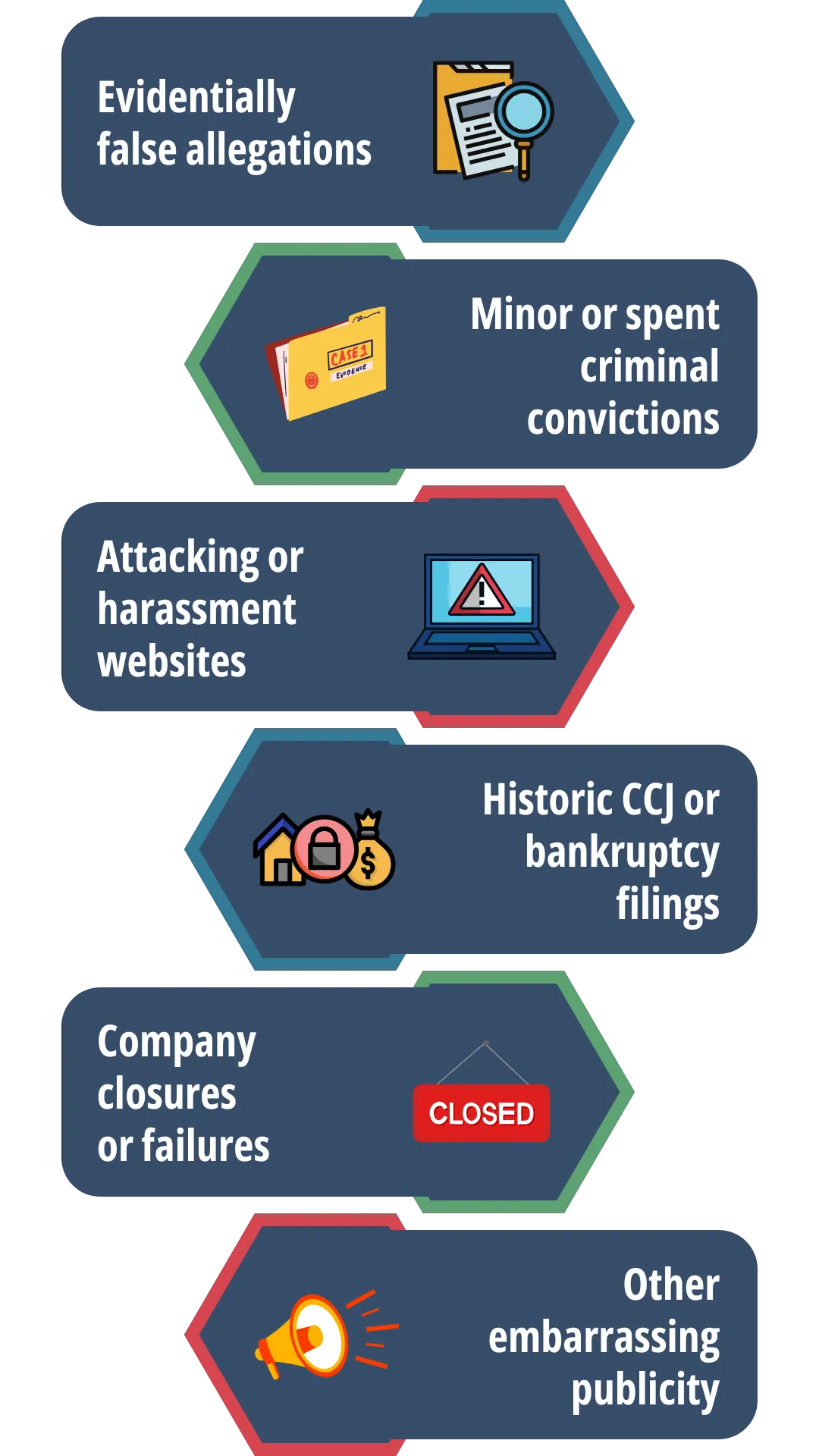
DON’T LET YOUR DIGITAL PAST DEFINE YOU
Your online reputation matters. Whether it’s outdated search results or embarrassing posts, we’re here to help you erase the past and move forward with confidence.
DON’T LET YOUR DIGITAL PAST DEFINE YOU
Your online reputation matters. Whether it’s outdated search results or embarrassing posts, we’re here to help you erase the past and move forward with confidence.
We're The UK's Highest Rated Reputation Management Firm
With over 240 positive reviews on Trustpilot alone, Internet Erasure is proud to be the UK’s most trusted reputation management firm. Join the hundreds of people who’ve taken control of their online reputation. Start your journey today!
We're The UK's Highest Rated Reputation Management Firm
With over 240 positive reviews on Trustpilot alone, Internet Erasure is proud to be the UK’s most trusted reputation management firm. Join the hundreds of people who’ve taken control of their online reputation. Start your journey today!
Frequently Asked Questions
How can a person claim their Right to be Forgotten?
Private individuals (or their appointed representatives) contact the search engine concerned, evidence their ID, affirm that specifically identified content is referencing them, and that it is being returned when their name is searched, and provide compelling reasons why they would like it removed.
How can a person control their search results under the Right to be Forgotten?
When claiming the Right to be Forgotten, an individual must present legitimate reasons for removal to the search engines. These are known as legal grounds.
What are the legal grounds under the Right to be Forgotten?
To delete articles from Google or Bing, it will not usually be sufficient to rely on one ground, a combination of clearly explained legal arguments will be required in most Right to be Forgotten cases.
This list is a summary and is not exhaustive, each application for deletion of articles from search results should be made and assessed on its own merits.
BREACH OF PRIVACY - Unauthorised disclosure of a data subject's full address, religion, ethnicity, disability, medical data, private images or other sensitive private information (such as enforced disclosure of a criminal record), which has been made public (Sometimes loosely termed DOXXING).
INADEQUATE - The articles are missing important context or key information, or only show one side (perhaps no right of reply was given or an unbiased person or person with a conflict of interest contributed to or wrote the article), or are of such poor quality as to not be good enough to effectively satisfy any possible public interest* or no longer reflect the data subject since their life has changed so substantially (e.g. a former problematic drug user who completed rehabilitation and has been drug free for many years, or a person who committed a crime which is now a spent conviction and no longer disclosable). Give examples of life changes or important information which is missing and which results in an inadequate view being presented, and evidence them if possible.
INACCURATE - Factual inaccuracies of such significance that they overshadow (and even harm) any possible public interest* in the content. Give examples of damaging inaccuracies and evidence them, unless they are clearly untrue to any reasonable person looking objectively, or if they could never be substantiated. (This can overlap with defamation which is a separate area but which has strict time limits).
EXCESSIVE - Inflammatory vulgar or insulting language used to describe a private individual or offensive imagery, any of which exceeds that which would reasonably be expected within such content, or numerous pervasive and repetitive links which distort the public perception of an individual and which would clearly cause an impact which is disproportionate to the purpose of the articles. Clearly explain.
NO LONGER RELEVANT - Old, out of date or insignificant information, e.g. a punishment which has been completed, a conviction which is spent, or references to a business or career which an individual has left or retired from. How long ago the events happened or were made public is important, as well as how they are portrayed compared to how they are today (eg Someone who was in an abusive relationship but subsequently escaped to build a new life, or someone who was addicted to drugs but has lived drug-free for many years). Evidence the irrelevance with key documents where possible e.g. proof of sentence, evidence of acquittal or current employment contract etc.
IMPACT - Clearly state any personal impact. e.g. personal and professional damage, mental suffering, housing and/or employment discrimination, difficulties with interpersonal relationships, impact on family members, risks to personal and family safety etc. If possible, evidence any impacts. Explain that the impact of content appearing in search results is disproportionate to any ongoing public interest*.
PERSONAL PROFILE - Confirm that the data subject is a private individual, not a public figure, with strong rights of privacy. If the individual is in the public eye or public scrutiny is reasonably expected, but this position is unrelated to the content, explain why it is unrelated and that this is a privacy breach. Clearly identify how the individual’s privacy rights override any public interest*.
*Note that “in the public interest” does not mean “that which the public are interested in” (in a curiosity sense), but rather, it means that which it is of benefit to the public to have access to, and that it is of significant importance.
Further detail can be found in the Information Commissioner’s overview of how to remove damaging content from search engine results at https://ico.org.uk/your-data-matters/online/internet-search-results/ and their helpful criteria for removing articles from Google, Bing, Yahoo and DuckDuckGo search results under the Right to Erasure / Right to be Forgotten https://ico.org.uk/for-organisations/search-result-delisting-criteria
Does the Right to be Forgotten apply to everyone?
Every individual in the UK and EU is entitled to claim the Right to be Forgotten at any time and on multiple occasions if required. However, removal of content from search results is a discretionary, not absolute right. This means that notwithstanding that the right does apply to all individuals, it does not apply to all circumstances, nor to all content, meaning that not everything will be removable at any specific snapshot in time.
Further detail can be found in Google’s transparency report at https://transparencyreport.google.com/eu-privacy/overview?hl=en
How do the search engines remove content (such as newspaper articles)?
The search engines use coding to block (also known as deindexing) the identified articles, images, links and shares from Search Engine Results Pages (SERPs) for any searches which include the name of the private individual who has claimed their Right to be Forgotten.
What are examples of search results that can be blocked?
Relevant images and articles which appear in SERPs for search terms which include the name of a private individual can be blocked including, but not limited to “first name last name”, “first name last name accused” “first name last name convicted”, “first name last name sentenced”, “first name last name town”, “first name last name car accident” etc
What are examples of search terms that can’t be blocked?
Images and articles which appear in SERPs for search terms which do not include the name of a private individual will not be blocked, examples of search terms which will continue to return the same results after claiming the Right to be Forgotten include, for example, “man arrested for fraud”, “Company closes after deliberate fire”, “Essex car accident”, "London tragedy 2018_" etc.
What happens if the search engines refuse to block articles under the Right to be Forgotten?
If a search engine such as Google refuses to block search results when correctly and reasonably requested to do so under the Right to be Forgotten, then an appeal can be made to The Information Commissioner.
The appeal should include the original grounds for removal, reasons countering the search engines response as well as copies of all correspondence.
Further detail can be found at The Information Commissioners guide to complaining against a search engine for their refusal to remove articles from search results at https://ico.org.uk/make-a-complaint/search-results/
The process can take several months and during this waiting period, it can often be beneficial to make new Right to be Forgotten submissions to the search engines concerned with refined arguments addressing their previous refusal. There is no limit to how many submissions can be made (although if made more than once every 3-6 months, Google systems will reject them as repeated).
Are the publishers informed when articles have been deleted from search results under the
Right to be Forgotten?
No, publishers are no longer informed when articles are blocked or deindexed from SERP's.
Deletion under the Right to be Forgotten is a process that happens in the background, it could be seen as going "over the heads" of the publishers. Effectively, the search engines are the gatekeepers - a higher authority than the publishers, with almost total control over who finds the adverse media. Under the Right to be Forgotten these gatekeepers can be required to fully protect the privacy rights of private individuals.
When Google removes an article, Bing deletes an image, or Yahoo blocks a news report, they do not have any lawful basis to notify the website owner and if they were to do so it would be a breach of GDPR and a violation of the individual's right to privacy.
Are people searching informed that articles have been deleted from search results.
No, people searching names of private individuals are not informed when articles are blocked, or deindexed under the Right to be Forgotten.
Instead, whenever any name is searched in the UK and EU, Google presents a general disclaimer at the bottom of each SERP (At all times, whether any Right to be Forgotten applications have been made or not, and whether any results have been removed or not) "Some results may have been removed under data protection law in Europe. Learn more"
Frequently Asked Questions
How can a person claim their Right to be Forgotten?
Private individuals (or their appointed representatives) contact the search engine concerned, evidence their ID, affirm that specifically identified content is referencing them, and that it is being returned when their name is searched, and provide compelling reasons why they would like it removed.
How can a person control their search results under the Right to be Forgotten?
When claiming the Right to be Forgotten, an individual must present legitimate reasons for removal to the search engines. These are known as legal grounds.
What are the legal grounds under the Right to be Forgotten?
To delete articles from Google or Bing, it will not usually be sufficient to rely on one ground, a combination of clearly explained legal arguments will be required in most Right to be Forgotten cases.
This list is a summary and is not exhaustive, each application for deletion of articles from search results should be made and assessed on its own merits.
BREACH OF PRIVACY - Unauthorised disclosure of a data subject's full address, religion, ethnicity, disability, medical data, private images or other sensitive private information (such as enforced disclosure of a criminal record), which has been made public (Sometimes loosely termed DOXXING).
INADEQUATE - The articles are missing important context or key information, or only show one side (perhaps no right of reply was given or an unbiased person or person with a conflict of interest contributed to or wrote the article), or are of such poor quality as to not be good enough to effectively satisfy any possible public interest* or no longer reflect the data subject since their life has changed so substantially (e.g. a former problematic drug user who completed rehabilitation and has been drug free for many years, or a person who committed a crime which is now a spent conviction and no longer disclosable). Give examples of life changes or important information which is missing and which results in an inadequate view being presented, and evidence them if possible.
INACCURATE - Factual inaccuracies of such significance that they overshadow (and even harm) any possible public interest* in the content. Give examples of damaging inaccuracies and evidence them, unless they are clearly untrue to any reasonable person looking objectively, or if they could never be substantiated. (This can overlap with defamation which is a separate area but which has strict time limits).
EXCESSIVE - Inflammatory vulgar or insulting language used to describe a private individual or offensive imagery, any of which exceeds that which would reasonably be expected within such content, or numerous pervasive and repetitive links which distort the public perception of an individual and which would clearly cause an impact which is disproportionate to the purpose of the articles. Clearly explain.
NO LONGER RELEVANT - Old, out of date or insignificant information, e.g. a punishment which has been completed, a conviction which is spent, or references to a business or career which an individual has left or retired from. How long ago the events happened or were made public is important, as well as how they are portrayed compared to how they are today (eg Someone who was in an abusive relationship but subsequently escaped to build a new life, or someone who was addicted to drugs but has lived drug-free for many years). Evidence the irrelevance with key documents where possible e.g. proof of sentence, evidence of acquittal or current employment contract etc.
IMPACT - Clearly state any personal impact. e.g. personal and professional damage, mental suffering, housing and/or employment discrimination, difficulties with interpersonal relationships, impact on family members, risks to personal and family safety etc. If possible, evidence any impacts. Explain that the impact of content appearing in search results is disproportionate to any ongoing public interest*.
PERSONAL PROFILE - Confirm that the data subject is a private individual, not a public figure, with strong rights of privacy. If the individual is in the public eye or public scrutiny is reasonably expected, but this position is unrelated to the content, explain why it is unrelated and that this is a privacy breach. Clearly identify how the individual’s privacy rights override any public interest*.
*Note that “in the public interest” does not mean “that which the public are interested in” (in a curiosity sense), but rather, it means that which it is of benefit to the public to have access to, and that it is of significant importance.
Further detail can be found in the Information Commissioner’s overview of how to remove damaging content from search engine results at https://ico.org.uk/your-data-matters/online/internet-search-results/ and their helpful criteria for removing articles from Google, Bing, Yahoo and DuckDuckGo search results under the Right to Erasure / Right to be Forgotten https://ico.org.uk/for-organisations/search-result-delisting-criteria
Does the Right to be Forgotten apply to everyone?
Every individual in the UK and EU is entitled to claim the Right to be Forgotten at any time and on multiple occasions if required. However, removal of content from search results is a discretionary, not absolute right. This means that notwithstanding that the right does apply to all individuals, it does not apply to all circumstances, nor to all content, meaning that not everything will be removable at any specific snapshot in time.
Further detail can be found in Google’s transparency report at https://transparencyreport.google.com/eu-privacy/overview?hl=en
How do the search engines remove content (such as newspaper articles)?
The search engines use coding to block (also known as deindexing) the identified articles, images, links and shares from Search Engine Results Pages (SERPs) for any searches which include the name of the private individual who has claimed their Right to be Forgotten.
What are examples of search results that can be blocked?
Relevant images and articles which appear in SERPs for search terms which include the name of a private individual can be blocked including, but not limited to “first name last name”, “first name last name accused” “first name last name convicted”, “first name last name sentenced”, “first name last name town”, “first name last name car accident” etc
What are examples of search terms that can’t be blocked?
Images and articles which appear in SERPs for search terms which do not include the name of a private individual will not be blocked, examples of search terms which will continue to return the same results after claiming the Right to be Forgotten include, for example, “man arrested for fraud”, “Company closes after deliberate fire”, “Essex car accident”, "London tragedy 2018_" etc.
What happens if the search engines refuse to block articles under the Right to be Forgotten?
If a search engine such as Google refuses to block search results when correctly and reasonably requested to do so under the Right to be Forgotten, then an appeal can be made to The Information Commissioner.
The appeal should include the original grounds for removal, reasons countering the search engines response as well as copies of all correspondence.
Further detail can be found at The Information Commissioners guide to complaining against a search engine for their refusal to remove articles from search results at https://ico.org.uk/make-a-complaint/search-results/
The process can take several months and during this waiting period, it can often be beneficial to make new Right to be Forgotten submissions to the search engines concerned with refined arguments addressing their previous refusal. There is no limit to how many submissions can be made (although if made more than once every 3-6 months, Google systems will reject them as repeated).
Are the publishers informed when articles have been deleted from search results under the
Right to be Forgotten?
No, publishers are no longer informed when articles are blocked or deindexed from SERP's.
Deletion under the Right to be Forgotten is a process that happens in the background, it could be seen as going "over the heads" of the publishers. Effectively, the search engines are the gatekeepers - a higher authority than the publishers, with almost total control over who finds the adverse media. Under the Right to be Forgotten these gatekeepers can be required to fully protect the privacy rights of private individuals.
When Google removes an article, Bing deletes an image, or Yahoo blocks a news report, they do not have any lawful basis to notify the website owner and if they were to do so it would be a breach of GDPR and a violation of the individual's right to privacy.
Are people searching informed that articles have been deleted from search results.
No, people searching names of private individuals are not informed when articles are blocked, or deindexed under the Right to be Forgotten.
Instead, whenever any name is searched in the UK and EU, Google presents a general disclaimer at the bottom of each SERP (At all times, whether any Right to be Forgotten applications have been made or not, and whether any results have been removed or not) "Some results may have been removed under data protection law in Europe. Learn more"
YOUR FUTURE IS WORTH PROTECTING
Your online presence should reflect who you are today—not who you were yesterday.
Let us help you secure your reputation and peace of mind.
YOUR FUTURE IS WORTH PROTECTING
Your online presence should reflect who you are today—not who you were yesterday.
Let us help you secure your reputation and peace of mind.
Company Details and Compliance Information
Internet Erasure Ltd
Company Registration Number: 13916445 (click here to verify)
VAT Registration Number: GB 423 9389 73 (click here to verify)
Date Protection Registration: ZB325928 (click here to verify)
D-U-N-S Number: 228679847 (click here to verify)
Independently Verified By Trustpilot (click here to verify)
Registered in England and Wales
Registered Office: Suite 5, 5th Floor City Reach,
5 Greenwich View Place, London, E14 9NN
Telephone: +442036662252
WhatsApp/SMS: +447565130116
Please note that due to our criminal justice and harassment work, we do not accept telephone calls from withheld numbers
or from people who are currently serving a prison sentence.
Communications are sent, evidence requested and retained, and data processed in accordance with our Privacy Policy.
Service Level Agreement (SLA)
Weekdays (8am - 6pm)
WhatsApp and SMS: Replied to within 30 mins
Emails: Replied to within 3hrs
Phone Calls: Personally answered 24/7/365, by our call handling team who note initial details. A return telephone call with the most suitable caseworker is then arranged by WhatsApp or SMS, for a mutually convenient time.
Evening, Weekend and Bank Holiday communications are responded to within 24hrs.
OFFICIAL or OFFICIAL-SENSITIVE communications, (typically from police, probation, CPS or equivalent organisations), must be sent to our Senior Caseworker's Criminal Justice Secure Mail (CJSM), available upon request.
Payments: The payment process forms part of our ID verification, anti-fraud and anti money laundering checks. We accept online payments by all types of credit and debit cards, however we do not accept card payments over the telephone. We welcome card payments in any currencies and these are processed by our payment processor which is PayPal. We also welcome bank transfers within the UK or globally using IBAN/ SWIFT. We do not accept untraceable payments; for clarity, this means that we do not accept cash or cryptocurrencies of any kind.
Legal Status: Internet Erasure Ltd are a team consisting of media and data protection lawyers, privacy experts, criminal justice caseworkers, researchers and PR/reputation management specialists providing legal, technical, and administrative assistance to clients, as well as formal representation on their behalf. Legal aid is not available for the work we perform. Internet Erasure Ltd are not solicitors, we do not carry out 'Reserved Activities', as defined by Section 12 of the Legal Services Act 2007 and our work is not caught by the requirement to be regulated by the SRA; although we may consult, instruct , or recommend solicitors and direct access barristers from our panel. We also routinely accept direct engagement from solicitors and other advocates on behalf of clients.
Intellectual Property: 'Internet Erasure', 'Internet Eraser', 'IE Law', 'Enforced Disclosure', 'Right to be Forgotten Helpline', 'YOU have the Right to be Forgotten", Sweep and Submit', '1st Impressions and 2nd chances', ''For a brighter future online', SOS - Second Opinion Service', 'Crawler Bot', head and shoulders silhouette logo, words flowing around our custom eraser logo, IE Crawler Bot logo, all other logos, images, video, audio and buttons not otherwise copyrighted, legal arguments and other templates, text, contracts, proprietary software, overall branding (look and feel) and all content of this website and other group websites are SM, TM and © 2022, 2023, 2024 Internet Erasure Ltd, Internet Erasure Ltd trading as IE Law. All Rights Reserved. We maintain our domain registrations for the maximum allowable period which is currently 10 years, meaning that our domain names are not due to expire until 2034, when they will automatically renew (click here to verify interneterasure.co.uk), (click here to verify interneterasure.com), (click here to verify interneterasure.net), (click here to verify interneteraser.co.uk), (click here to verify IELaw.co.uk). Any attempts to infringe our intellectual property rights will be robustly countered with significant resources, expertise and experience being deployed against all perpetrators.
We use cookies to enhance your browsing experience, analyse site traffic, and serve personalised content. By continuing to use our website, you agree to our use of cookies. For more information, please read our Cookie Policy.
